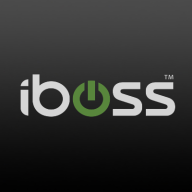


Cisco Umbrella and Forcepoint CASB operate in the cloud security domain, offering solutions to meet various organizational demands. Cisco Umbrella is often preferred due to its efficient DNS security and ease of integration, whereas Forcepoint CASB stands out with its comprehensive monitoring capabilities.
Features: Cisco Umbrella focuses on comprehensive DNS security, web content filtering, and ease of integration to meet compliance standards. It provides lightweight security even without high-spec appliances. Forcepoint CASB offers real-time control and monitoring, detailed visibility into cloud applications, and integration within different IT environments, emphasizing strong cloud application visibility and compliance frameworks.
Room for Improvement: Cisco Umbrella could enhance network security and handling of local subnet DNS. Users call for better reporting analytics, scaling options, and SIEM integration. More granular traffic monitoring and an improved malware protection engine are desired. Forcepoint CASB should address backend stability and improve support responsiveness. Users suggest better integration with secure web gateways and smoother deployment processes, alongside stronger support for custom applications.
Ease of Deployment and Customer Service: Cisco Umbrella is noted for swift deployment in public and hybrid clouds, with minimal reliance on support, which remains responsive. It offers consistent technical support with detailed guidance. Forcepoint CASB manages public and on-premises deployments well but could improve support personalization and live interaction. Users appreciate quick technical responses but seek better customer service, specifically in licensing and deployment.
Pricing and ROI: Cisco Umbrella's varied pricing packages cater to different scales, with some seeing the cost as competitive while others find it higher. Significant ROI is reported through reduced hardware needs and improved threat mitigation. Forcepoint CASB has moderate pricing, offering value through a proactive security approach. While both show positive ROI, Cisco Umbrella is favored for broader policy management and Forcepoint for detailed application monitoring.
| Product | Market Share (%) |
|---|---|
| Cisco Umbrella | 10.2% |
| iboss | 2.3% |
| Forcepoint CASB | 1.4% |
| Other | 86.1% |



| Company Size | Count |
|---|---|
| Small Business | 6 |
| Midsize Enterprise | 6 |
| Large Enterprise | 5 |
| Company Size | Count |
|---|---|
| Small Business | 49 |
| Midsize Enterprise | 30 |
| Large Enterprise | 51 |
| Company Size | Count |
|---|---|
| Small Business | 6 |
| Midsize Enterprise | 1 |
| Large Enterprise | 2 |
Iboss offers a comprehensive cloud-based security platform valued for its scalability and autonomous features, ensuring robust security with easy deployment and management capabilities.
Renowned for its robust security architecture, Iboss integrates seamlessly within diverse networks, delivering efficient granular filtering and advanced content categorization. Its single pane of glass console provides ease of management, allowing rapid scalability suitable for rapidly deploying environments. Operates in BYOD setups due to inline filtering without device installation. Integration with cloud-based applications enhances user control, and features like SASE, SSL inspection, and ChatGPT risk protection stand as highlights. Despite its strengths, users have pointed out areas for enhancement like direct navigation in reports, SSL decryption, and better cloud integration while having room to improve data loss prevention.
What are the most important features of Iboss?The usage of Iboss spans educational institutions, specifically K-12, to enforce internet policies, protect data, and support remote work environments. It provides web filtering and security frameworks to ensure safe browsing. Its platform-as-a-service model offers flexibility for both cloud-based and on-premises requirements, integrating seamlessly to deliver enhanced security features suitable for various deployment needs including zero trust, CASB, and network security for work-from-home setups.
Cisco Umbrella delivers rapid DNS security with over 30,000 customers, providing outstanding threat protection and handling more than 600 billion requests daily. It's recognized for high threat efficacy in the SSE domain and integrates elements like SWG, ZTNA, CASB, and more.
Cisco Umbrella is renowned for its effective DNS-layer security against ransomware and phishing. It offers flexible content filtering and integrates seamlessly with existing networks while providing single-pane-of-glass management for centralized monitoring. Its robust threat intelligence and customizable policies are central to its appeal. Users highlight room for improvement in areas like WHOIS data inclusion, malware enhancement, and reporting analytics. Integration with other threat feeds and better client support are requested for more comprehensive coverage.
What are the key features of Cisco Umbrella?
What should users expect in reviews about Cisco Umbrella?
Industries implement Cisco Umbrella primarily for DNS-level security, web filtering, and protecting remote employees. It strengthens cybersecurity frameworks by blocking malware and avoiding access to harmful sites. The tool is widely integrated with Active Directory and Cisco Meraki, providing consistent internet security for employees.
Forcepoint CASB (Cloud Access Security Broker) is a security solution which is designed to secure and monitor the use of cloud services within an organization. It helps organizations gain visibility and control over the cloud applications and services being used by their employees. Forcepoint CASB integrates with cloud service providers' APIs and employs various techniques such as traffic analysis, proxying, and API-based controls to provide security and visibility into cloud application usage. It can be deployed as a standalone solution or integrated with other security technologies within an organization's existing infrastructure.
Forcepoint CASB Features:
Forcepoint CASB Benefits:
Reviews from Real Users
Edwin Eze Osiago, Regional Solutions Manager (Sub-Sahara Africa) at InfodataReliable, says that Forcepoint CASB is "Easy to set up and offers good visibility".
PeerSpot user, Professional Services Coordinator at a tech vendor, writes that Forcepoint CASB "Needs better backend code, requires stronger technical support, and the initial setup should be easier" and also adds that "The most valuable aspect for us is the fact that the product seamlessly integrates with the Forcepoint DLP".
Mahendra Bedre, Lead at Infrastructure Solutions ALM, says that Forcepoint CASB's "Macro integration and IDs for credentials are great features; It is easy to use with a good layout".
We monitor all Cloud Access Security Brokers (CASB) reviews to prevent fraudulent reviews and keep review quality high. We do not post reviews by company employees or direct competitors. We validate each review for authenticity via cross-reference with LinkedIn, and personal follow-up with the reviewer when necessary.